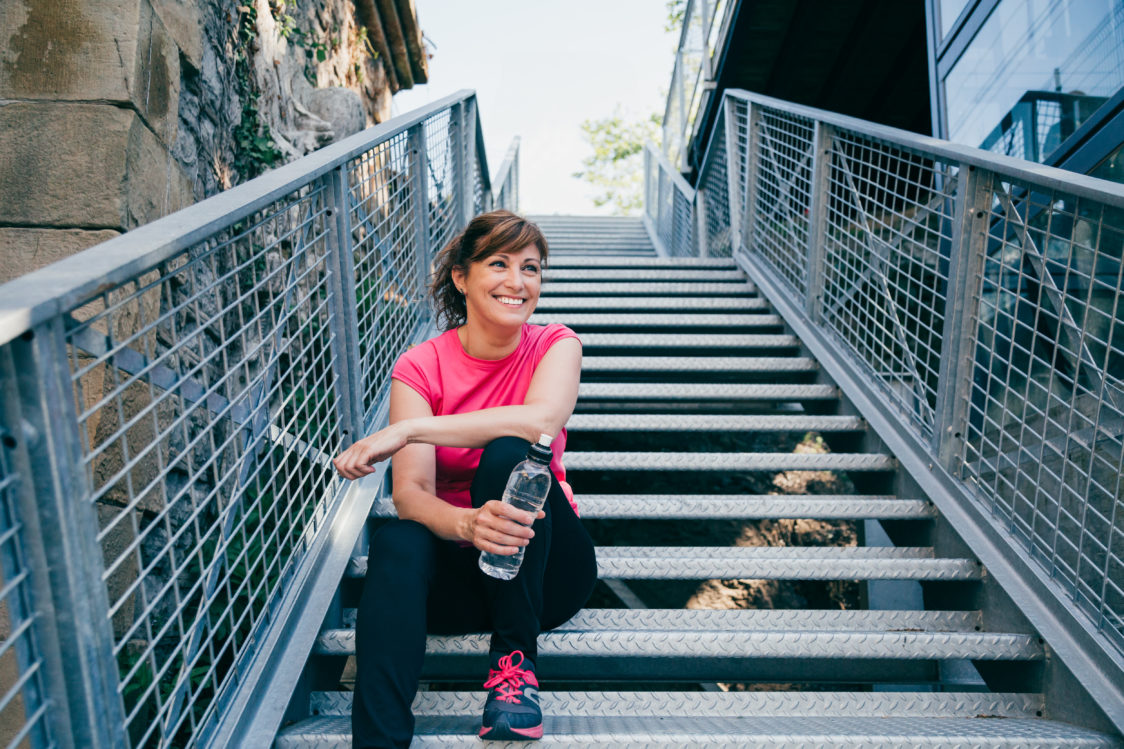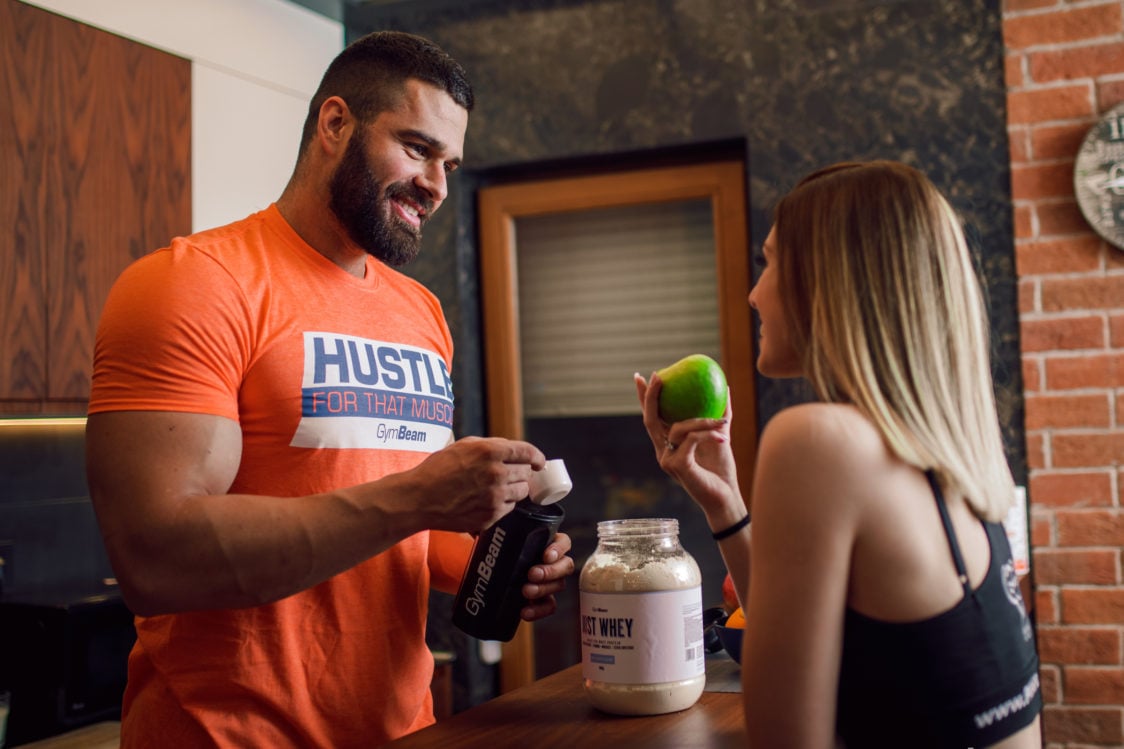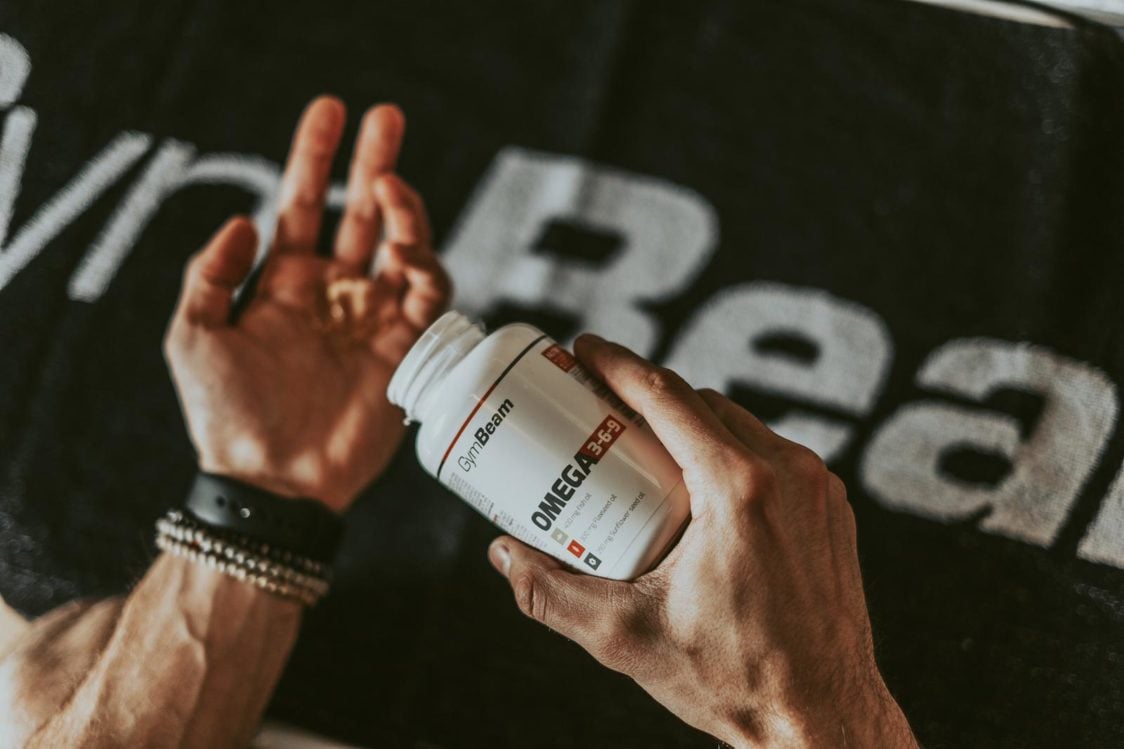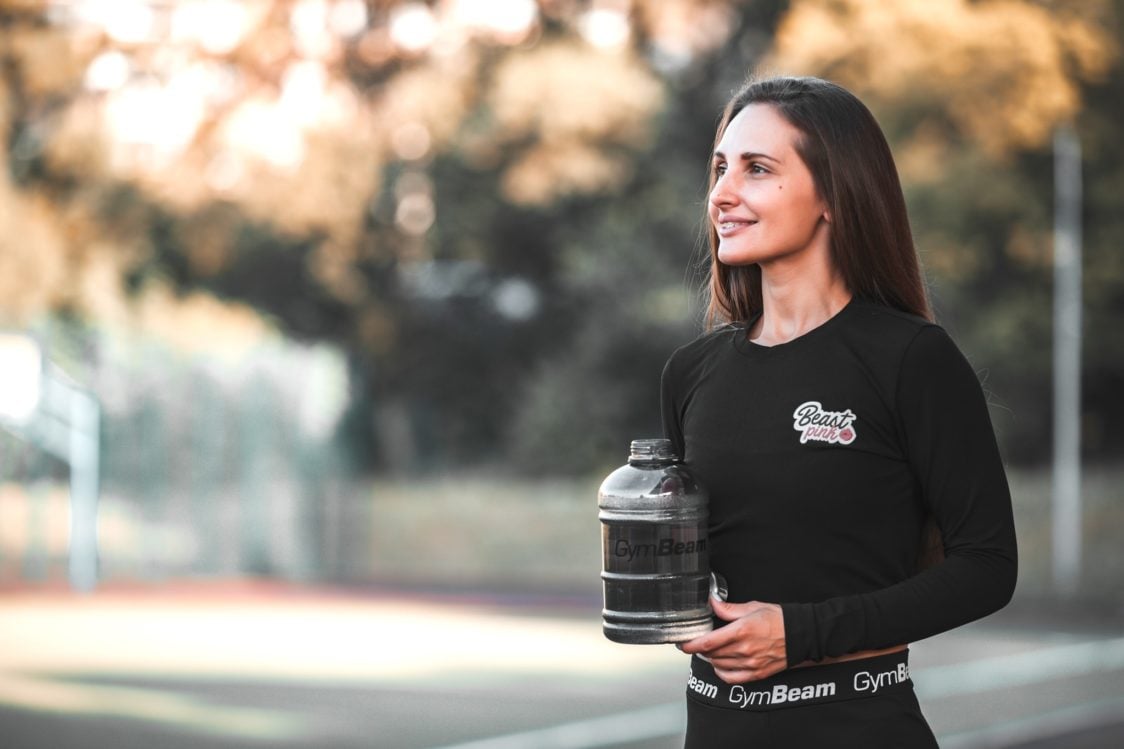Table of Contents
Ageing is normal and it is part of life, but let’s face it, who wouldn’t want to stop it or at least slow it down? After all, none of you are jumping with excitement at the thought of growing wrinkles, grey hair or aching joints. But unfortunately, you have to forget about the elixirs of endless life or time reversers and accept the fact that you cannot stop the passing years. Nevertheless, all is not lost. You may be pleased to know that science has a clue about what to do to age with better health and to make the passing of time less visible.
In this article you will read, among other things, what effect the following nutrients and substances have on health and anti-ageing:
What do you think of when you hear the terms anti-ageing or healthy ageing?
Many of you have probably already come across the term anti-ageing. It is simply a group of all manner of methods and practices that seek to slow or even stop ageing. Although neither of these can be achieved yet, and the impact of the passage of time cannot be stopped by any miracle, science is gradually coming up with ways to at least reduce the effects of ageing on your body. Everyone wants to look young and vital for as long as possible and are searching for ways to achieve this.
So, forget about the magic of delaying old age and be realistic, it is more appropriate to work with the concept of healthy ageing. Through various practices and care for your body, it is possible to make the gradual advancement of years less visible on your body and to age with better health and fitness.
Healthy-ageing and anti-ageing approaches range all the way from plastic surgery, laser and Botox to lifestyle changes. For example, it is important to focus on getting enough sleep, work on dealing with stress, good nutrition, getting enough exercise and taking care of your skin and complexion. With these practices, it is possible to enjoy ageing with improved health and a younger-looking body.

What are the processes behind ageing?
Ageing itself and its complexity is still a great mystery to us, but scientists now know some of the processes involved. We now know what is behind, for example, the higher incidence of chronic diseases in old age or the gradual deterioration of certain physiological functions of the human body. [23]
Mechanisms involved in ageing of the body:
- DNA changes: DNA is the structure that encodes the properties of the whole body. And it is its gradual deterioration that happens during ageing. These changes include, for example, the gradual accumulation of defects in the DNA of the cells themselves or in the DNA of the mitochondria (the cell’s “power plants”), which contributes to greater oxidative stress. [23]
- Telomere dysfunction: the DNA in question, together with other structures, clusters into chromosomes, the ends of which are called telomeres. The gradual shortening of telomeres and the lower activity of the enzyme telomerase probably contribute to the ageing process. [23]
- Epigenetic changes: genetic information is influenced by many external influences, collectively known as epigenetic factors. Thus, the gradual impact of the environment on an organism leads to an accumulation of changes in its genetic makeup. [23]
- Protein synthesis and proteolysis imbalance: many chronic diseases and other health problems are related to reduced protein production (proteosynthesis).
All the processes described above happen gradually and are a natural part of the body’s ageing process. However, when you reduce inappropriate habits and focus on the correct body care, these changes may not be so obvious on your body.

What do you gain when you focus on practices that promote healthy ageing?
Beautiful skin with fewer wrinkles or less cellulite on the thighs is not the only thing that is hidden under the term “healthy ageing”. The body that you look after throughout your life can reward you with many other benefits later in life, which are ultimately even more important than a good-looking exterior.
- First and foremost, it is a lower risk of chronic diseases that go hand in hand with ageing. We are talking, for example, about cardiovascular problems or metabolic diseases such as type 2 diabetes. Ageing is also often accompanied by neurodegenerative diseases (Alzheimer’s disease, Parkinson’s disease, etc.), a higher incidence of cancer or musculoskeletal problems (e.g. joint and spinal pain, etc.). A lower incidence of these diseases in old age will certainly increase performance and quality of life. [23,52]
- Healthy habits throughout life also lead to better immune system function. Older people with good immunity are thus better able to resist viral and bacterial infections, which are often more dangerous to an older person’s health than to a young person’s.
- The body can also reward you with improved mental health and a lower risk of psychological problems such as depression or anxiety. [23]
- More powerful cognitive abilities such as memory, learning new things or the ability to concentrate is another benefit. [23]
- A healthy older person is more productive and has an overall better quality of life. Simply put, instead of having to go from doctor to doctor or being forced to stay at home due to health issues, they can work, spend time on hobbies, or enjoy their grandchildren in addition to retirement.

Tips on how to stay healthy and youthful for as long as possible
1. Get sufficient and quality sleep
Sleep is one of the most important foundations of good health, both physically and mentally. It will not come as news to you that chronic sleep deprivation can promote the onset of various health problems, even at a young age. For example, it increases the risk of cardiovascular problems, type 2 diabetes or immune disorders. Sleep deprivation is even linked to higher mortality rates. In fact, sleep acts as a kind of life-booster, during which your body renews itself and literally regains its strength for life. [29]
How does sleep support your health?
- Sleep is important for the proper function of the immune and cardiovascular system, as well as overall physical health. [3,4]
- You need quality sleep to maintain sound cognitive abilities. It helps to improve and maintain memory, concentration and the ability to learn new things. [24]
- Optimal sleep duration can also act as a defence against psychological problems such as depression, anxiety and more. [28]
- It also helps improve skin hydration. I’m sure you’ve noticed that your skin looks fresher and healthier after you’ve had a good night’s sleep.
- Sleep also helps with maintaining a healthy body weight. Among other things, it influences the ideal production of hunger and satiety hormones, which affect appetite. When you are well rested, it is easier to maintain an adequate energy intake. Since obesity is in itself a major risk to overall health, it is important to maintain a healthy body weight even at an older age. [8]
- During sleep, your body regenerates and you not only feel it, but you can see it. Repair processes take place not only in the muscles or the brain, but also in the skin. However, when you don’t get a good night’s sleep, you don’t give it the time it needs, so you wake up with puffy eyes, dark circles under your eyes and dull skin. It’s worth remembering, however, that the skin is likely to remember the neglect, which can manifest itself in premature ageing. [33]

How long should you sleep for?
Slightly different amounts of sleep suit everyone, but research shows that most healthy adults need between 7 and 9 hours of sleep a day. Older people over the age of 64 are recommended to sleep 7-8 hours a day. This also coincides with the general recommendations of the National Sleep Foundation. [24]
However, it is not only the amount of hours slept that is important, but also the quality of sleep. Sleep should ideally be uninterrupted and should be accompanied by a healthy sleep routine in order to get all the benefits from it. For example, nutritional supplements for better sleep, such as the Sleep & Relax functional complex, can also help you get a good night’s sleep. [24]
Learn more about the benefits of sleep in our article How to Improve Sleep and How It Affects Health and Muscle Growth?
2. Learn to manage your stress
Long-term stress is a precursor to health problems. It is associated not only with poorer mental health but also physical health and is considered a risk factor for many health problems. These include for example cardiovascular, autoimmune or neurodegenerative diseases. These are generally typical of occurrence in older age and chronic stress can further promote and accelerate their development. Conversely, reducing exposure to stress can have a myriad of positive effects on the body. [42]
How does stress reduction help your health?
- It reduces the risk of chronic diseases such as cardiac problems, immune diseases and metabolic problems such as type 2 diabetes.
- Techniques that help manage stress are obviously particularly beneficial for mental health care. In fact, studies show that they are associated with a lower incidence of dementia and depression in older age. [27]
- Stress management also goes hand in hand with proper sleep habits. When one is not stressed, sleep is naturally better, which in itself contributes to good health.
How can you manage stress?
In the course of life, you encounter a myriad of stressful situations and it is quite easy to be under constant pressure. Sometimes you can’t prevent these conditions from arising, but it’s important to learn to manage how they affect you.
You should ideally find an activity that can relax you and give you a minute of rest and relaxation from the stresses of everyday life. For some, it may be sport, for others it may be relaxing through meditation. Joint activities with those close to you, music or any kind of artistic activity can also help. But first and foremost, it should definitely be activities that make you happy and make you feel good. Appropriate nutritional supplements, such as ashwagandha, can also help to combat stress. If you are interested in this topic, read our article Adaptogens: Natural Substances that Help to Cope with Stress.
Read more about ways to help you reduce stress in our article Why is Stress Dangerous and How to Reduce It?

3. Say NO to cigarettes
There is perhaps no activity more notorious for its negative effects on the body than smoking. In short, you all know that you are destroying your health with cigarettes. One meta-analysis even found that people who have never smoked have up to twice the chance of ageing in good health compared to active smokers. [9]
How do cigarettes harm your health?
- Smoking is responsible for an increase in the risk of cancer. For example, up to 80% of lung cancers are caused by smoking. It also increases the risk of cancers of the mouth, oesophagus, larynx, liver, stomach and other organs. [46]
- Smokers are at a higher risk of respiratory problems. [46]
- Heart attack, stroke and other cardiovascular problems are also more common in smokers. [9,46]
- Dementia can also be a surprisingly more significant threat to smokers. In fact, smoking increases the risk by up to 34% for every 20 cigarettes smoked per day, according to research. [27]
- Cigarettes are also associated with problems such as stained teeth and an overall higher risk of tooth and gum disease. [46]
- Smoking also has a significant effect on the skin and can be responsible for premature ageing. In fact, wrinkles, dehydrated and fragile-looking skin are a common consequence of long-term smoking. [32]
The list of cigarette-related health problems can go on forever. It is probably obvious, then, that if one wants to maintain good health and a youthful appearance in the long term, avoiding smoking should be a matter of course. However, this is not always easy, which is why it is certainly good news that there are places that can help with this.
4. Move your body and be physically active
Although you all know, or at least suspect, that movement is extremely important for you, many people pay woefully little attention to it. Yet there is perhaps no area of health that does not benefit from some form of exercise. Figures from 2019 tell us that in the European Union, only 27% of 18-24 year olds engaged in the recommended amount of physical activity. In the 25-35 age group, the proportion of people who were sufficiently active was even lower, at 20%. Interestingly, the amount of exercise decreases with age, and of the older population aged 65 and above, only 7.5% of people were achieving the recommended amount of physical activity. This sounds quite worrying when you consider that, according to the World Health Organisation (WHO), people with insufficient levels of exercise have a 20-30% higher risk of death than those who are active. [47,52]
How does exercise help your health?
- It reduces the risk of a large number of chronic diseases. This includes cardiovascular disease, type 2 diabetes, obesity and some types of cancer. [52]
- Movement also improves the function of the immune system. It supports the body’s resistance to infections or inflammatory diseases, which can become more complicated in old age. [21]
- It has an effect on the overall improvement of the condition of the cardiovascular system. It is involved in lowering blood pressure, adjusting blood lipid levels and improving blood circulation.
- In addition, the heart is generally more efficient thanks to movement.
- Movement promotes strength building and maintaining or gaining muscle mass. This is extremely important in old age, as muscle mass naturally declines with age.
- Maintaining strength and mobility, both of which are influenced by movement, are very important for maintaining independence in older age. [21]
- Maintaining cognitive abilities is also a benefit of physical activity. It is believed to have an impact on memory, planning and problem-solving skills. [21]
- Physical activity also helps to maintain mental health and for example reduce the risk of depression. [21]
Regular exercise also affects the way you look. Have you noticed that people at an older age who exercise regularly look younger? Movement helps you maintain a healthy body weight and strengthen your muscles, making you look more vital and healthy. Being active can also have an impact on your skin. This is because regular exercise helps your skin retain more moisture, so it has fewer wrinkles, is more supple and looks younger. [36]

How much exercise do you need to maintain your health?
- The World Health Organization (WHO) recommends at least 150-300 minutes of moderate-intensity aerobic activity or at least 75-150 minutes of vigorous-intensity aerobic activity per week for a healthy adult. It is ideal to combine this in addition with strength training, at least twice a week.
- People over 65 years of age are advised to perform varying forms of exercise that promote balance and strength, three or more times a week. [52]
If you would like to read more about the benefits of exercise, you can check out our article How Does Your Body and Mind Change When You Start Exercising and Eating Healthy?
5. Be sure to have high quality nutrition
Nutrition affects many processes in the body, and ageing is no exception. The food you fill your stomach with on a daily basis simply has an impact on the state your body will be in a few years from now.
What impact does the nutritional composition of diet have on health?
- Good eating habits are associated with a lower incidence of chronic diseases (type 2 diabetes, cancer, cardiovascular disease, etc.) and a higher life expectancy.
- Nutrition can also significantly affect the chance of developing sarcopenia, which is a condition in which muscle mass gradually decreases and muscle function deteriorates. Along with this, the quality of life decreases, the risk of injury and even death increases. [37]
- Nutrition is also related to cognitive ability and the incidence of Alzheimer’s disease and other neurodegenerative diseases. A nutritious diet can likely help prevent these diseases and contribute to maintaining a productive and healthy brain. [37]
- Good nutrition also influences the function of the immune system. Old age is associated with a higher susceptibility to infectious or inflammatory diseases, but a good diet can help reduce the risk. [37]
- Last but not least, proper nutrition helps take care of healthy bones. When preparing for old age, it is certainly advisable to keep this in mind, as osteoporosis and fractures are problems that can make life significantly more difficult for older people.

Although nutrition has significant health benefits, it certainly doesn’t mean that you have to diet your whole life. The healthiest diet is one that provides the body with sufficient amounts of all the nutrients it currently needs. Such a diet is varied, high quality, well-balanced and contains all the important macronutrients (proteins, fats, carbohydrates) and micronutrients (minerals, vitamins, other bioactive substances). [14]
In terms of healthy ageing, several nutrients and foods stand out that scientists have linked to significant negative or positive effects on ageing. So, today we’re going to look at which nutrients and foods in your diet are important and which are best avoided.
What should appear more often in your diet?
1. Protein
Protein plays an indispensable role in healthy ageing. Not only muscle mass, but also countless physiological processes in the body are built on proteins. For example, the function of the immune system, the function of enzymes or hormones, or the transport of oxygen throughout the body. The amount of protein in the diet thus determines to a large extent how functional your body is. [16]
In comparison to the younger population, the amount of protein in the diet becomes even more important during ageing.
Ageing is associated with a natural loss of muscle and a lower production of proteins in the body (proteosynthesis). This may in turn promote the development of the aforementioned sarcopenia, in which muscle mass gradually declines and muscle function deteriorates. This goes hand in hand with poorer general health and thus susceptibility to various diseases, as well as the difficulty of looking after oneself at an advanced age.
What should a healthy protein intake look like?
A healthy adult who does not live an active lifestyle should have at least 0.8 – 1 g of protein/kg of weight. Athletes need 1.4 – 2 g/kg, but the specific amount depends on a number of factors, including the type and volume of sporting activity. Older people are recommended to have an intake of around 1 – 1.2 g/kg, or even higher if they already have poor health or diseases that are demanding on protein intake. [51]
The best sources of protein are animal products such as meat, fish, eggs and dairy products. However, you can also get protein from legumes, cereals, nuts and seeds. Protein powder, whether in the form of whey protein or one of the plant-based proteins, is also a great source of protein.
More details about the functions of proteins, their sources and the differences between plant and animal proteins can be found in our article Protein: Functions in the Body, Recommended Intake, Food Sources and the Dangers of Deficiency.

2. Omega-3 fatty acids
Omega-3 fatty acids (omega-3 FAs) are an important component of healthy fats and have many health benefits for the body. For example, they are important for the brain, the nervous system and for efficient cognitive function. They are also involved in maintaining healthy cholesterol and blood pressure levels. Alpha-linolenic acid, which is essential for the body (the body cannot make it and needs to consume it in the diet), is credited with having a positive effect on cholesterol. DHA and EPA, which are formed from ALA, are known for their effect on the brain and heart. [45]
- Omega-3 FAs are likely to contribute to overall improved cognitive status and a slowing of cognitive decline. For older people, for example, they may help with memory, information processing or planning. [15,39]
- These fatty acids also seem to improve immune function. They may help to maintain the immunity of an ageing body, which is more susceptible to various diseases. [39]
- Their positive effect probably does not exclude muscles and bones. It seems that they can promote bone mass resistance and the rate of proteosynthesis. This is an effect that may be beneficial in the elderly in preventing the aforementioned sarcopenia. [31,39]
What should an optimal intake of omega-3 fatty acids look like?
Of your total energy intake, omega-3 fatty acids should account for about 0.5-2%, which means 1-4 g at a reference intake of 2000 kcal. Of this, about 250 mg should be EPA and DHA. A home diagnostic test can also help you detect your levels of omega-3 FAs in your body. [20]
Read more about omega-3 fatty acids in our article Omega-3 Fatty Acids: Are you Consuming Enough of Them and in the Right Ratio to Omega-6?

3. Antioxidants
Antioxidants help fight free radicals that are produced by oxidative stress. As free radicals damage cells, they can contribute to ageing, including the skin, which is the largest organ in the body. It also increases the risk of various diseases (cancer, cardiovascular problems, etc.). The older the body is, the more vulnerable it is to the action of free radicals, so substances with antioxidant activity may be helpful in preventing health problems as well as in maintaining a youthful appearance.
Which nutrients belong among antioxidants?
- Vitamin C: A water-soluble vitamin that not only acts as an antioxidant, but is also part of collagen formation. It is thus appreciated by skin that gradually wears down and needs nutrients to maintain its vitality. [16]
- Vitamin E: It is a fat-soluble vitamin that, in addition to acting as an antioxidant, helps maintain a healthy heart and memory as well as other cognitive functions. [45]
- Selenium: A mineral that supports the health of your hair, skin, nails, immune and cardiovascular systems. [5,45]
- Substances such as catechins, flavonoids, polyphenols and others, which are abundant in fruit, vegetables and other plant foods, also have antioxidant effects. [41]
In what foods can you find antioxidants?
| vitamin C | vitamin E | selenium* |
|---|---|---|
| paprika | nuts and seeds | meat |
| brassica vegetables (broccoli, cauliflower, kohlrabi, etc.) | wheat germ oil | fish and seafood |
| potatoes | sunflower seeds | eggs |
| berries | almonds | dairy products |
| kiwi | sunflower oil | brazil nuts |
| citrus fruits | hazelnuts, peanuts | broccoli |
| wholegrain products |
* However, the amount of selenium in food depends on its content in the soil in which the plant was grown and on its content in animal feed.
First and foremost, you should focus on the intake of antioxidants from a quality diet. A varied and multicoloured diet will help – the more varied your choice of vegetables, fruit and other foods, the more antioxidants they will contain. Then you can also take a nutritional supplement to increase your antioxidant intake even further. Depending on what you need to supplement, you can choose products with a complex composition of antioxidant substances or individual nutrients such as vitamin C, quercetin or lutein, for example.
You might be interested in these products:
4. Probiotics
Probiotics are beneficial bacteria that live naturally in your body and most of them are found in the digestive tract. They are part of the intestinal microbiota, which is made up of other microorganisms, such as yeast, in addition to bacteria. However, along with the beneficial microorganisms, there are also undesirable ones, which can promote the development of various health problems. Therefore, in order to avoid the domination of harmful bacteria and other microorganisms, it is advisable to focus on having enough probiotic foods in the diet to support the proper composition of the intestinal microbiota.
Benefits of a healthy intestinal microbiota
- First and foremost, they promote bowel movements and digestive health. This is particularly important during ageing, as digestion often deteriorates as the years go by.
- The composition of intestinal microbiota also influences the function of the immune system.
- It is even becoming apparent that these inhabitants of your intestines can also affect your mental health. Most likely, they can contribute to a better mood and more powerful cognitive abilities.
- Probiotics apparently help increase the absorption of certain nutrients. For example, higher absorption of calcium may contribute to better bone health. [26]
- The impact of intestinal microbiota is also likely to be reflected in your skin. Studies suggest that its optimal composition could promote skin health and vitality. In addition, the skin itself has its own colony of microorganisms, the so-called skin microbiota. These two worlds seem to work closely together, and proper care of both can have an impact on skin health and ageing. [11,22]
Which foods contain probiotics?
- Fermented milk products such as yoghurt, kefir or acidophilus milk are rich in probiotics. Bryndza cheese is also an excellent source.
- They can also be found in fermented vegetables such as cabbage or fermented cucumbers.
- They are also found in tempeh, kimchi and kombucha.
- When food sources are not sufficient, you can also get them from dietary supplements.

5. Calcium
Calcium is a mineral with many important functions in the body. Perhaps you all associate it with healthy bones and teeth, but calcium is also involved in many other processes in the human body, such as the transmission of nerve impulses.
Function of calcium in the body:
- Calcium is the basic building block of bones. It is therefore necessary for strength maintenance. However, when the amount of calcium in the body is insufficient, osteoporosis is a risk and a person has a higher risk of fractures. Osteoporosis is then associated with joint pain and reduced mobility. In addition, fractures often heal more slowly in an older person, which also reduces mobility.
- It is also important for maintaining muscle function. Calcium deficiency can lead to muscle weakness, which increases the risk of falls in the elderly.
- The nervous system is also dependent on the amount of calcium in the body. This mineral is part of the transmission of nerve impulses.
Which foods contain calcium and how much should you consume daily?
The average healthy adult aged 19-50 years needs 1000 mg of calcium daily. The requirement for adults over 50 years of age increases to 1200 mg. [18]
The best source of calcium are dairy products. For example, 100g of edam cheese contains about 730 mg of calcium, which is 73% of the daily recommended intake for an adult aged 19-50 years and 61% of the recommended intake for a person aged 50 years and over. [40]
Many plant foods are also rich in calcium. Poppy seeds top the list, followed by nuts and brassicas (broccoli, cauliflower, kale, brussel sprouts, kohlrabi, etc.). For example, poppy seeds contain up to 1440 mg / 100 g.
The catch, however, is that calcium from plant sources is much less absorbable than that from animal sources. Only about 5% of the calcium content is absorbed from plant sources, whereas you get up to about 30% of the calcium content from animal sources. In short, it is easier to meet the recommended calcium intake through dairy products. At the same time, calcium in the form of a dietary supplement can also help with sufficient intake. [49]
6. Vitamin D
We are hearing more and more about vitamin D lately. Scientists are gradually discovering that it is involved in a large number of physiological processes and that its deficiency can manifest itself in a wide range of health problems. These can include problems with immune function, cognitive decline or, for example, osteoporosis.
Researchers have found that up to 40% of Europeans have inadequate vitamin D stores. The main source of vitamin D is sunlight, which is insufficient at these latitudes throughout the year. At the same time, there are not enough food sources to cover the need for vitamin D. It is therefore quite difficult to get enough of this vitamin from the diet. [1]
However, as the years go by, this becomes even more challenging, for several reasons. The digestive tract is less efficient in old age, and so there may be less absorption of the vitamin from your diet. At the same time, the body’s ability to make vitamin D is naturally lower. For older people, it is practically impossible to get enough of this nutrient from natural sources. It is thus advisable to supplement it in order to take advantage of its positive effects. [35]
What are the benefits of Vitamin D?
- Vitamin D contributes to bone health. It helps in the process of calcium absorption and thus plays a role in the prevention of osteoporosis and fractures.
- It is also important for proper muscle function. It is likely to help promote muscle strength as well as muscle growth. [10]
- This vitamin is also involved in immune processes. It can thereby contribute to the body’s defenses. [50]
- Healthy levels of vitamin D have even been linked through research to a lower risk of certain cancers and heart disease. [55]
- Not only the elderly population can appreciate this nutrient because of its possible impact on the maintenance of cognitive abilities. [50]
Which foods contain vitamin D and how much should you consume daily?
As we have already mentioned, the main source of vitamin D is sunlight. From food sources, oily fish from the ocean, egg yolk and viscera are excellent. In addition, it can be found in fungi, in which it is produced by the action of sunlight. However, since it is so difficult to obtain sufficient amounts of this vitamin from food, it may also be advantageous to take it in the form of a dietary supplement. [17]
To learn more about the effects, sources and manifestations of vitamin D deficiency, see our article Vitamin D: Why is It So Important, What Causes Deficiency and How to Supplement?
What should be restricted in your diet?
1. Highly processed foods
Highly processed foods generally include all those that are rich in additives such as preservatives, dyes and other additives. They also contain a lot of refined carbohydrates and simple sugars or unhealthy fats. This includes a variety of confectionery (chocolate, cakes, etc.), savoury snacks, delicate pastries (croissants, doughnuts, etc.), sweetened beverages, fast food and more.
Eating too much of these foods is generally associated with a higher risk of health problems. It is the combined effect of too many calories, unhealthy fats, excessive sugar and salt intake and other substances that can lead to poorer health in the long term. According to one study, eating highly processed foods was associated with up to a 50% increase in the risk of frailty in older people. This is a condition where a person is generally weak, has little mobility and is prone to health problems. A diet rich in these foods is also likely to have an impact on skin health. For example, researchers have linked a diet rich in simple sugars and refined carbohydrates to the occurrence of acne. [6,7,44]
However, many people, in an effort to save money, often have a diet rich in these foods. They are both cheaper and more flavourful. However, these foods are likely to promote inflammatory processes in the body, while at the same time taking up space in your diet for more nutritious foods that could benefit the body. It is therefore optimal to limit these nutritionally poor and energy-dense foods as much as possible and focus on foods with a higher nutritional value. [37]
Our article 11 Tips on How to Save on Food and Eat Cheaply and with Quality will show you how to eat healthily even on a lower budget.

2. Salt
It’s certainly no news to you that excessive salt intake is bad for your health. Sodium, which is one of the two minerals that make up salt, plays the major pest here. Although sodium is essential for good health in certain amounts, when used in excess of the recommended amounts over a long period of time, it can lead to an increase in blood pressure. It can also trouble the body with excessive water retention. [48,53]
Which foods contain the highest salt content?
There is nothing easier than exceeding the recommended salt intake guidelines. In fact, you can find it in everything from baked goods, cold cuts, sweets to your home salt shaker, which many people use more than is healthy. So limiting salt in cooking and seasoning your food is definitely an important step in reducing the amount of salt in your diet. However, beware of some deceitful foods that hide surprisingly large amounts of salt. Which are they?
- processed foods
- hams, sausages, salami and other cold meats
- mouldy cheeses, feta, stringy cheese, etc.
- breakfast cereals
- baked goods, especially varieties additionally sprinkled with salt crystals
If you are wondering what other foods may surprise you with their nutritional value, open our article 10 Foods that Only Appear to be Healthy.
6. Don’t skip out on your fluid intake
Following a proper drinking routine is something that should not be neglected if you want to maintain your health. However, this is often a lifestyle component that is commonly overlooked. This is even more true in the older population, as older people naturally have a lower sense of thirst. It is also no exception that they take diuretics, i.e. drugs that increase urination. Moreover, the body’s hydration decreases with age. While a healthy adult’s body is 70% water, in older people it is only 50%. [2,25]
However, a low fluid intake can lead to dehydration. This is associated with symptoms such as fatigue, headache, constipation or even confusion and dizziness. Severe dehydration can lead to hospitalisation. On the other hand, when fluids are plentiful, it has only positives for the body.
What are the benefits of a sufficient fluid intake?
- Following a drinking regimen seems to help with brain performance, for example, memory quality or concentration.
- It is not surprising that fluid intake promotes good digestion. And it does so by limiting bloating, constipation or uncomfortable gastrointestinal reflux (also known as heartburn).
- It also helps reduce the risk of kidney stones or urinary tract infections. [2]
- A sufficient fluid intake goes hand in hand with well-hydrated skin. It then looks fresher and healthier. [34]

What is an optimal daily fluid intake?
According to the World Health Organization (WHO), an adult woman with a sedentary lifestyle should consume at least 2,200 ml of fluid per day, while a man should consume 2,900 ml. A more specific recommendation states that one should consume 30-45 ml of fluid/kg of weight daily. However, this is total fluid intake and this includes intake from food and metabolic water that is formed in the body. The final figure is thus roughly 20% lower. Fluid requirements depend on physical activity, climatic conditions and age. [19]
For people of an advanced age, the ESPEN (European Society for Parenteral and Enteral Nutrition) recommends that women over 65 drink at least 1.6 litres a day and men at least 2 litres a day. [30]
Your main source of fluids should be plain water, possibly slightly sparkling mineral water and tea. Drinks can be made more pleasant, for example with lemon or the addition of other fruit or herbs. This will improve the taste and appeal of the drink and may make it easier for a person who is less thirsty to take in sufficient fluids.
You can read more about hydration in our article How Insufficient Water Intake Affects Your Health.
7. Take care of your complexion and skin
Taking care of your skin and complexion goes hand in hand with healthy ageing, because it is on this largest organ of the body that the signs of ageing are visible at first glance. As skin ages, it naturally loses water and becomes thinner and less supple.
How to take care of your skin and complexion?
- It is important to protect your skin from the sun’s rays by wearing sunscreen and clothing.
- Washing your face should be a normal part of your daily routine in order to remove any impurities that have settled in your pores. [54]
- It is therefore recommended to use suitable skin cosmetics. Ageing skin needs to replenish moisture, for which creams ideally containing vitamin A, antioxidants or hyaluronic acid are suitable. [54]
- All the factors we’ve mentioned so far are also related to a healthy skin and complexion. You need to get enough sleep, limit stress, exercise, not smoke and eat a healthy diet. [38]
- Don’t forget about your skin in the summer, too, because that’s when it needs the utmost of care. Find out which nutrients will help protect your skin in our article The Best Foods and Nutrients for a Bronze Tan and Youthful Skin.

Harness the power of anti-ageing supplements
Science is very much concerned with the impact of natural substances on ageing and, in addition to the above-mentioned nutrients, there are others that show promising effects.
- Coenzyme Q10 is a substance that is naturally found in your cells. In mitochondria, which are the centre of the body’s energy processes, it helps with energy production. It is also a part of antioxidant systems and thus helps fight free radicals. [13]
- Quercetin belongs among antioxidants and is found in foods such as vegetables and fruits. According to current findings, it appears that it may play a role in reducing the risk of neurodegenerative diseases or acting as an anti-inflammatory agent. [12]
- Resveratrol is known to many as an antioxidant contained in wine. Due to its influence in reducing the effects of oxidative stress, it has great potential as part of the protection against many health complications. [43]
- Complex anti-ageing products combine the effects of several substances. These include alpha-lipoic acid, nicotinamide riboside chloride, coenzyme Q10 and others. These products support the body’s defence against oxidative stress and, in the mitochondria, also contribute to the production of energy essential for life.
What should you remember?
Although you would probably all like to, unfortunately you cannot stop or reverse ageing. However, it is possible to take steps that will support your health as you age and help you look younger. For example, it is never too late to start changing your eating or exercise habits. Targeted stress management, saying goodbye to cigarettes or taking care of the quality of your sleep also have great benefits. It’s up to you, when and to what extent you embark on these changes and pave the way to ageing more comfortably.
If you found our article interesting and enriching, don’t keep it to yourself and please share it with your friends and contacts.
[1] AMREIN, K. et al. Vitamin D deficiency 2.0: an update on the current status worldwide. - – https://www.nature.com/articles/s41430-020-0558-y
[2] BECK, A.M. et al. Narrative Review of Low-Intake Dehydration in Older Adults. - – https://www.ncbi.nlm.nih.gov/pmc/articles/PMC8470893/
[3] BESEDOVSKY, L. et al. The Sleep-Immune Crosstalk in Health and Disease. - – https://www.ncbi.nlm.nih.gov/pmc/articles/PMC6689741/
[4] BJØRKLUND, G. et al. Selenium: An Antioxidant with a Critical Role in Anti-Aging. - – https://www.ncbi.nlm.nih.gov/pmc/articles/PMC9570904/
[5] CLAUDEL, J.P. et al. Acne and nutrition: hypotheses, myths and facts. - – https://pubmed.ncbi.nlm.nih.gov/29633388/
[6] CONFORTI, C. et al. Acne and diet: a review. - – https://pubmed.ncbi.nlm.nih.gov/34423427/
[7] DASHTI, H.S. et al. Short Sleep Duration and Dietary Intake: Epidemiologic Evidence, Mechanisms, and Health Implications. - – https://pubmed.ncbi.nlm.nih.gov/26567190/
[8] DASKALOPOULOU, C. et al. Associations of smoking and alcohol consumption with healthy ageing: a systematic review and meta-analysis of longitudinal studies. - – https://www.ncbi.nlm.nih.gov/pmc/articles/PMC5905752/
[9] DAWSON-HUGHES, B. Vitamin D and muscle function. - – https://www.sciencedirect.com/science/article/pii/S0960076017300833
[10] DE PESSEMIER, B. et al. Gut–Skin Axis: Current Knowledge of the Interrelationship between Microbial Dysbiosis and Skin Conditions. - – https://www.ncbi.nlm.nih.gov/pmc/articles/PMC7916842/
[11] DEEPIKA - MAURYA, P.K. Health Benefits of Quercetin in Age-Related Diseases. - – https://www.ncbi.nlm.nih.gov/pmc/articles/PMC9032170/
[12] DÍAZ-CASADO, M.E. et al. The Paradox of Coenzyme Q10 in Aging. - – https://www.ncbi.nlm.nih.gov/pmc/articles/PMC6770889/
[13] DOMINGUEZ, L.J. et al. Healthy Aging and Dietary Patterns. - – https://www.ncbi.nlm.nih.gov/pmc/articles/PMC8879056/
[14] DONG, X. et al. Association of dietary ω-3 and ω-6 fatty acids intake with cognitive performance in older adults: National Health and nutrition examination Survey (NHANES) 2011–2014. - – https://doi.org/10.1186/s12937-020-00547-7
[15] DUYFF, R.L. Complete Food & Nutrition Guide. . New York: Academy of Nutrition and Dietetics, 2017. ISBN 978-0-544-52058-5.
[16] EFSA PANEL ON DIETETIC PRODUCTS, NUTRITION AND ALLERGIES (NDA) Dietary reference values for vitamin D. - – https://onlinelibrary.wiley.com/doi/abs/10.2903/j.efsa.2016.4547
[17] EFSA PANEL ON DIETETIC PRODUCTS, NUTRITION AND ALLERGIES (NDA) Scientific Opinion on Dietary Reference Values for calcium. - – https://onlinelibrary.wiley.com/doi/abs/10.2903/j.efsa.2015.4101
[18] EFSA PANEL ON DIETETIC PRODUCTS, NUTRITION, AND ALLERGIES (NDA) Scientific Opinion on Dietary Reference Values for water. - – https://onlinelibrary.wiley.com/doi/abs/10.2903/j.efsa.2010.1459
[19] EUROPEAN FOOD SAFETY AUTHORITY Scientific Opinion on Dietary Reference Values for fats, including saturated fatty acids, polyunsaturated fatty acids, monounsaturated fatty acids, trans fatty acids, and cholesterol. - – https://efsa.onlinelibrary.wiley.com/doi/pdf/10.2903/j.efsa.2010.1461
[20] FALCK, R.S. et al. Impact of exercise training on physical and cognitive function among older adults: a systematic review and meta-analysis. - – https://linkinghub.elsevier.com/retrieve/pii/S0197458019300855
[21] SMYTHE, P. et al. The Skin Microbiome: Current Landscape and Future Opportunities - – https://www.mdpi.com/1422-0067/24/4/3950
[22] GUO, J. et al. Aging and aging-related diseases: from molecular mechanisms to interventions and treatments. - – https://www.nature.com/articles/s41392-022-01251-0
[23] HIRSHKOWITZ, M. et al. National Sleep Foundation’s updated sleep duration recommendations: final report. - – https://pubmed.ncbi.nlm.nih.gov/29073398/
[24] HOOPER, L. et al. Water-loss dehydration and aging. - – https://pubmed.ncbi.nlm.nih.gov/24333321/
[25] HUTCHINSON, A.N. et al. The Effect of Probiotics on Health Outcomes in the Elderly: A Systematic Review of Randomized, Placebo-Controlled Studies. - – https://www.ncbi.nlm.nih.gov/pmc/articles/PMC8234958/
[26] KRIVANEK, T.J. et al. Promoting Successful Cognitive Aging: A Ten-Year Update. - – https://www.ncbi.nlm.nih.gov/pmc/articles/PMC8293659/
[27] LI, L. et al. Insomnia and the risk of depression: a meta-analysis of prospective cohort studies. - – https://pubmed.ncbi.nlm.nih.gov/27816065/
[28] LUYSTER, F.S. et al. Sleep: A Health Imperative. - – https://www.ncbi.nlm.nih.gov/pmc/articles/PMC3353049/
[29] MASOT, O. et al. Fluid Intake Recommendation Considering the Physiological Adaptations of Adults Over 65 Years: A Critical Review. - – https://www.ncbi.nlm.nih.gov/pmc/articles/PMC7694182/
[30] MOLFINO, A. et al. The Role for Dietary Omega-3 Fatty Acids Supplementation in Older Adults. - – https://www.ncbi.nlm.nih.gov/pmc/articles/PMC4210907/
[31] ORTIZ, A. - GRANDO, S.A. Smoking and the skin. - – https://onlinelibrary.wiley.com/doi/abs/10.1111/j.1365-4632.2011.05205.x
[32] OYETAKIN-WHITE, P. et al. Does poor sleep quality affect skin ageing? - – https://pubmed.ncbi.nlm.nih.gov/25266053/
[33] PALMA, L. et al. Dietary water affects human skin hydration and biomechanics. - – https://www.ncbi.nlm.nih.gov/pmc/articles/PMC4529263/
[34] REMELLI, F. et al. Vitamin D Deficiency and Sarcopenia in Older Persons. - – https://www.ncbi.nlm.nih.gov/pmc/articles/PMC6950416/
[35] RYOSUKE, O. et al. The association between activity levels and skin moisturising function in adults. - – https://www.ncbi.nlm.nih.gov/pmc/articles/PMC8018252/
[36] SHLISKY, J. et al. Nutritional Considerations for Healthy Aging and Reduction in Age-Related Chronic Disease - – https://www.ncbi.nlm.nih.gov/pmc/articles/PMC5227979/
[37] SUNDER, S. Relevant Topical Skin Care Products for Prevention and Treatment of Aging Skin. - – https://linkinghub.elsevier.com/retrieve/pii/S1064740619300343
[38] ÚBEDA, N. et al. Omega 3 fatty acids in the elderly. - – https://www.cambridge.org/core/journals/british-journal-of-nutrition/article/omega-3-fatty-acids-in-the-elderly/7F39F0A262107FC3CDCA6BEAC6148E30
[39] USDA FoodData Central. - – https://ndb.nal.usda.gov/index.html
[40] WICHANSAWAKUN, S. - BUTTAR, H.S. Chapter 32 - Antioxidant Diets and Functional Foods Promote Healthy Aging and Longevity Through Diverse Mechanisms of Action. - – https://www.sciencedirect.com/science/article/pii/B9780128131480000323
[41] YEGOROV, Y.E. et al. The Link between Chronic Stress and Accelerated Aging. - – https://www.ncbi.nlm.nih.gov/pmc/articles/PMC7400286/
[42] ZHOU, D.-D. et al. Effects and Mechanisms of Resveratrol on Aging and Age-Related Diseases. - https://www.ncbi.nlm.nih.gov/pmc/articles/PMC8289612/]
[43] ZUPO, R. et al. Ultra-processed food consumption and nutritional frailty in older age. - – https://pubmed.ncbi.nlm.nih.gov/36826622/
[44] EU Register of nutrition and health claims made on foods. - – https://ec.europa.eu/food/safety/labelling_nutrition/claims/register/public/?event=search
[45] Health Risks of Smoking Tobacco. - – https://www.cancer.org/healthy/stay-away-from-tobacco/health-risks-of-tobacco/health-risks-of-smoking-tobacco.html
[46] Health-enhancing physical activity statistics.- – https://ec.europa.eu/eurostat/statistics-explained/index.php?title=Health-enhancing_physical_activity_statistics
[47] Indicator Metadata Registry Details. - – https://www.who.int/data/gho/indicator-metadata-registry/imr-details/3082
[48] Office of Dietary Supplements - Calcium. - – https://ods.od.nih.gov/factsheets/Calcium-HealthProfessional/
[49] Office of Dietary Supplements - Vitamin D. - – https://ods.od.nih.gov/factsheets/VitaminD-HealthProfessional/
[50] Optimal Protein Intake Guide - Examine.- – https://examine.com/guides/protein-intake/
[51] Physical activity. - – https://www.who.int/news-room/fact-sheets/detail/physical-activity
[52] Salt reduction.- – https://www.who.int/news-room/fact-sheets/detail/salt-reduction
[53] Skin care in your 40s and 50s. - – https://www.aad.org/public/everyday-care/skin-care-basics/care/skin-care-in-your-40s-and-50s
[54] Vitamin D: The “sunshine” vitamin - PMC.- – https://www.ncbi.nlm.nih.gov/pmc/articles/PMC3356951/


Add a comment